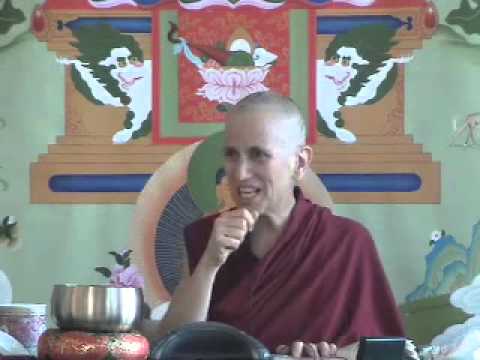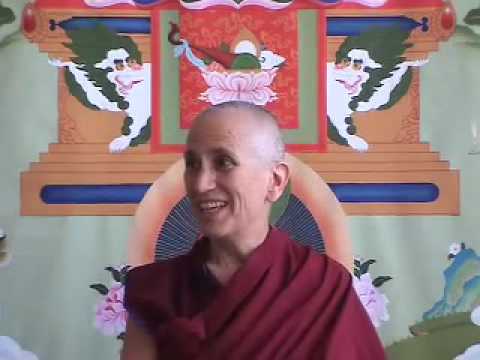Death time and relationships
Stages of the Path #27: Death and impermanence, Part 5
Part of a series of Bodhisattva's Breakfast Corner talks on the Stages of the Path (or lamrim) as described in the Guru Puja text by Panchen Lama I Lobsang Chokyi Gyaltsen.
- How many of us are perpetually preoccupied with the people in our lives
- Creation of negative karma in relationship to the people we care about
- The stress of facing death with overly-dramatic relatives
- Cultivating healthy relationships with those we care for
We’ve been talking about the time of death, what’s important. Our possessions are not important at the time of death. What about our friends and relatives? Some of us aren’t so attached to possessions, but we’re very attached to other people and to relationships, and everything that comes from relationships. Some people’s minds are perpetually preoccupied with thinking about their near and dear ones, and worrying about them, caring for them, wanting them to be happy. Thinking about them all the time and doing everything they possibly can to make their near and dear ones happy. But what happens at the time of death? We separate from our near and dear ones. They’re gone.
And sometimes in the process of trying to please our ear and dear ones we create a lot of negative karma. We may lie on their behalf, if they make a mistake, to get them out of trouble. We may lie. We may steal by doing unethical business deals in order to get material things for them. We may kill if something threatens them. We may speak harshly to others who don’t care about them in the way we do. There are lots of ways in which we create negativity on account of our near and dear ones. And yet, at the time we die we separate from them, and there’s no way they can accompany us. We may think, “Well, at least if they can’t accompany me, they’ll help me at the time of death.” But that’s not sure, either, because sometimes they’re so upset that they can’t even be in the room with us. Because they’re so involved with their own feelings of suffering. And then you’re trying to die, and you’re worrying about them. You can’t even focus on your own process.
I think one of the worst ways to die would be with a bunch of people (who are) attached to you sobbing at your bedside saying, “I can’t live without you. I love you. Don’t leave.” And yet, that’s what we want them to say while we’re alive and healthy. “You’re the most important thing in my life, don’t leave me.” And yet, at the time of death, how do you die with somebody acting in that way? Very difficult to have a peaceful kind of death.
Yesterday the question came, “How do we have a healthy relationship with possessions and money, because we need them in our lives? Here the question comes: “How do we have a healthy relationship with other people?” Because we’re obviously social creatures, and we live together with others So how do we have a healthy relationship with other people and be close, and share, and take care of each other, but without this attachment, and without creating a lot of negative karma on each other’s behalf? And without wasting our precious human lives spent in having fun with each other. You can spend a lot of time having fun with your near and dear ones, and the whole life goes by, and then it’s over. So the question comes, “How do we have a healthy relationship with other people?”
I think that’s quite an important question. Of course, I have some ideas about it, but I’m not going to share them because I think it’s good if you think about it and come up with some ideas of your own.
Venerable Thubten Chodron
Venerable Chodron emphasizes the practical application of Buddha’s teachings in our daily lives and is especially skilled at explaining them in ways easily understood and practiced by Westerners. She is well known for her warm, humorous, and lucid teachings. She was ordained as a Buddhist nun in 1977 by Kyabje Ling Rinpoche in Dharamsala, India, and in 1986 she received bhikshuni (full) ordination in Taiwan. Read her full bio.


